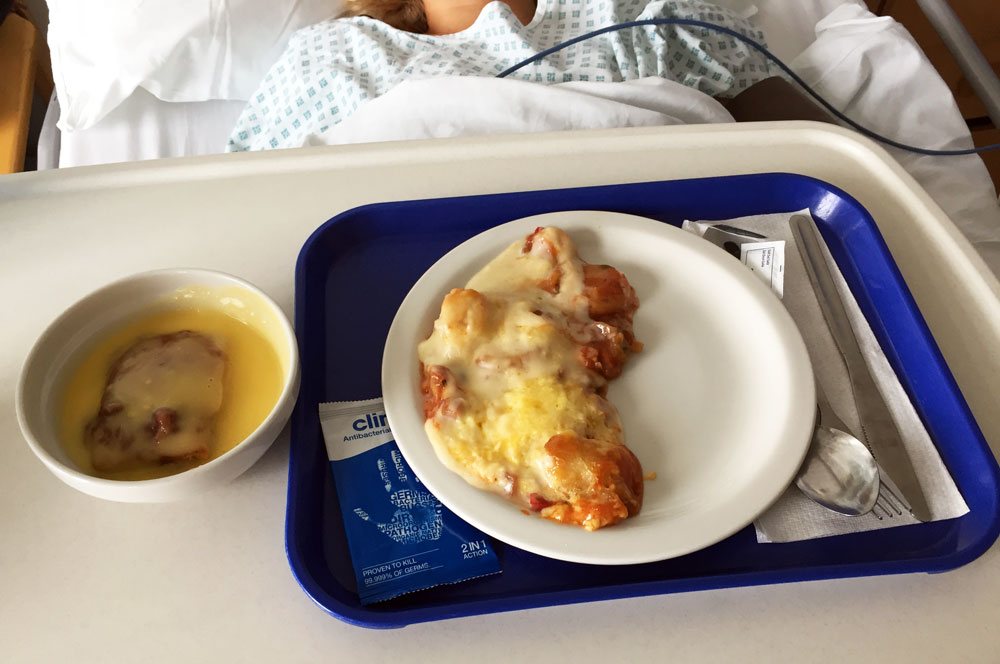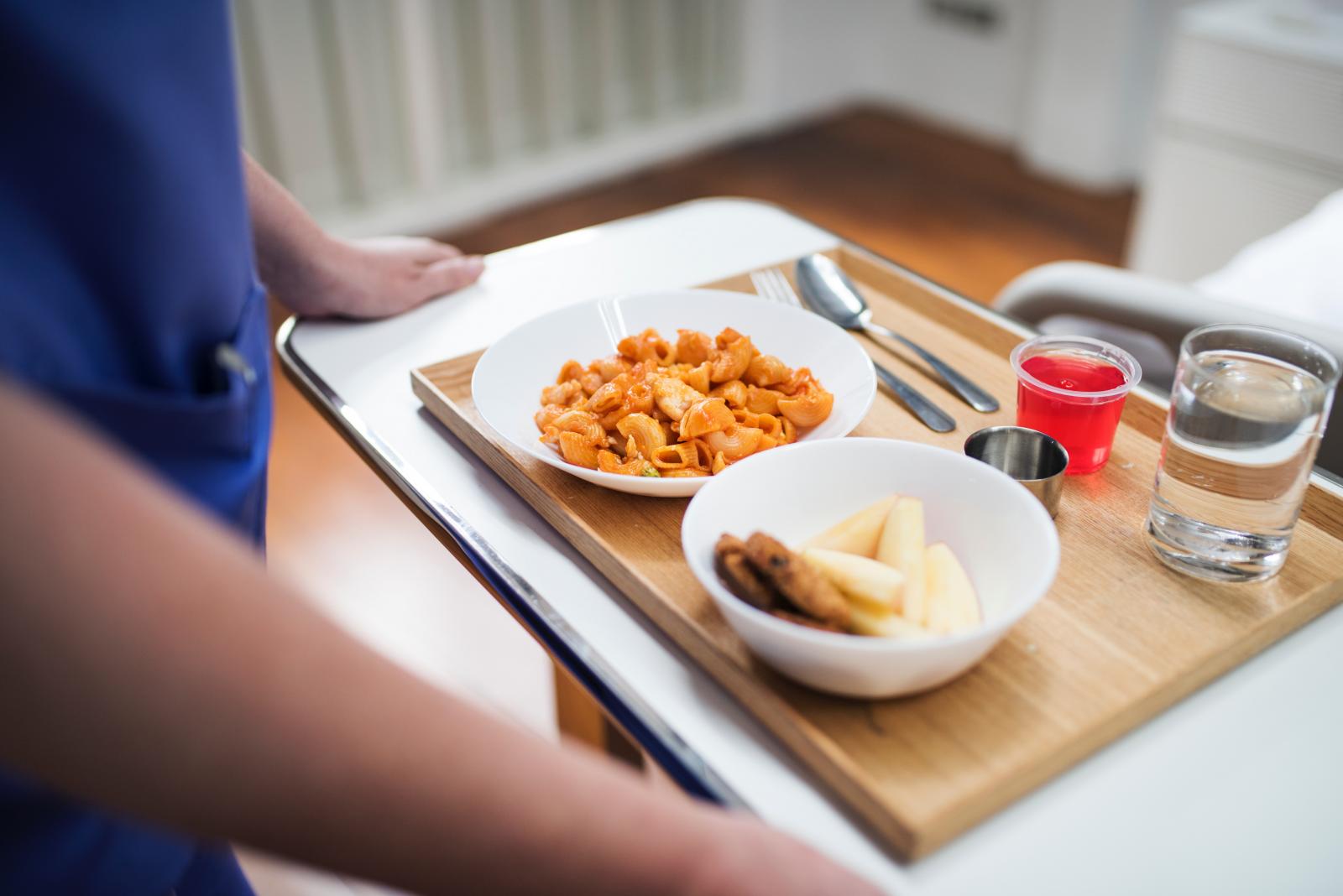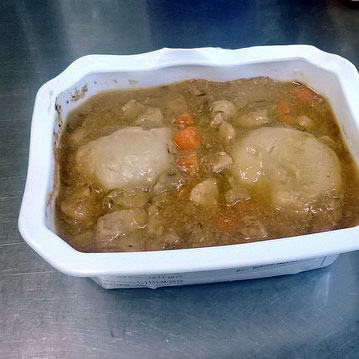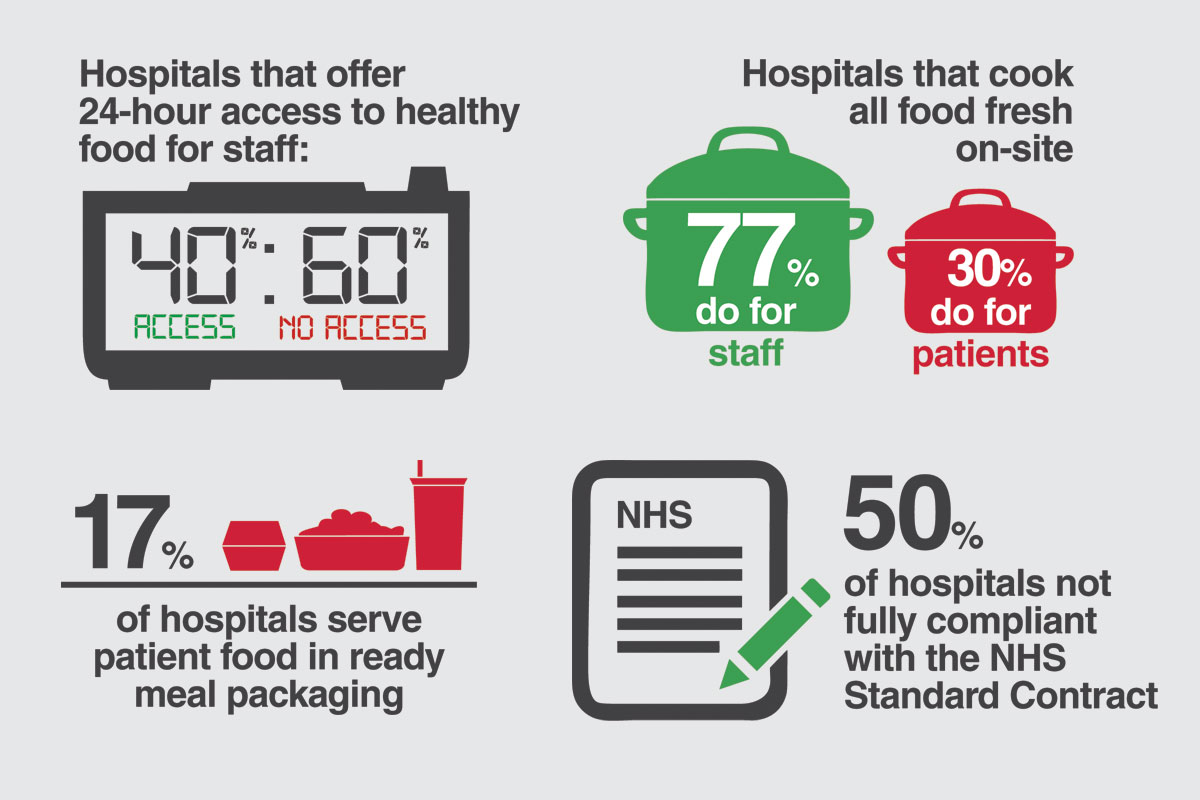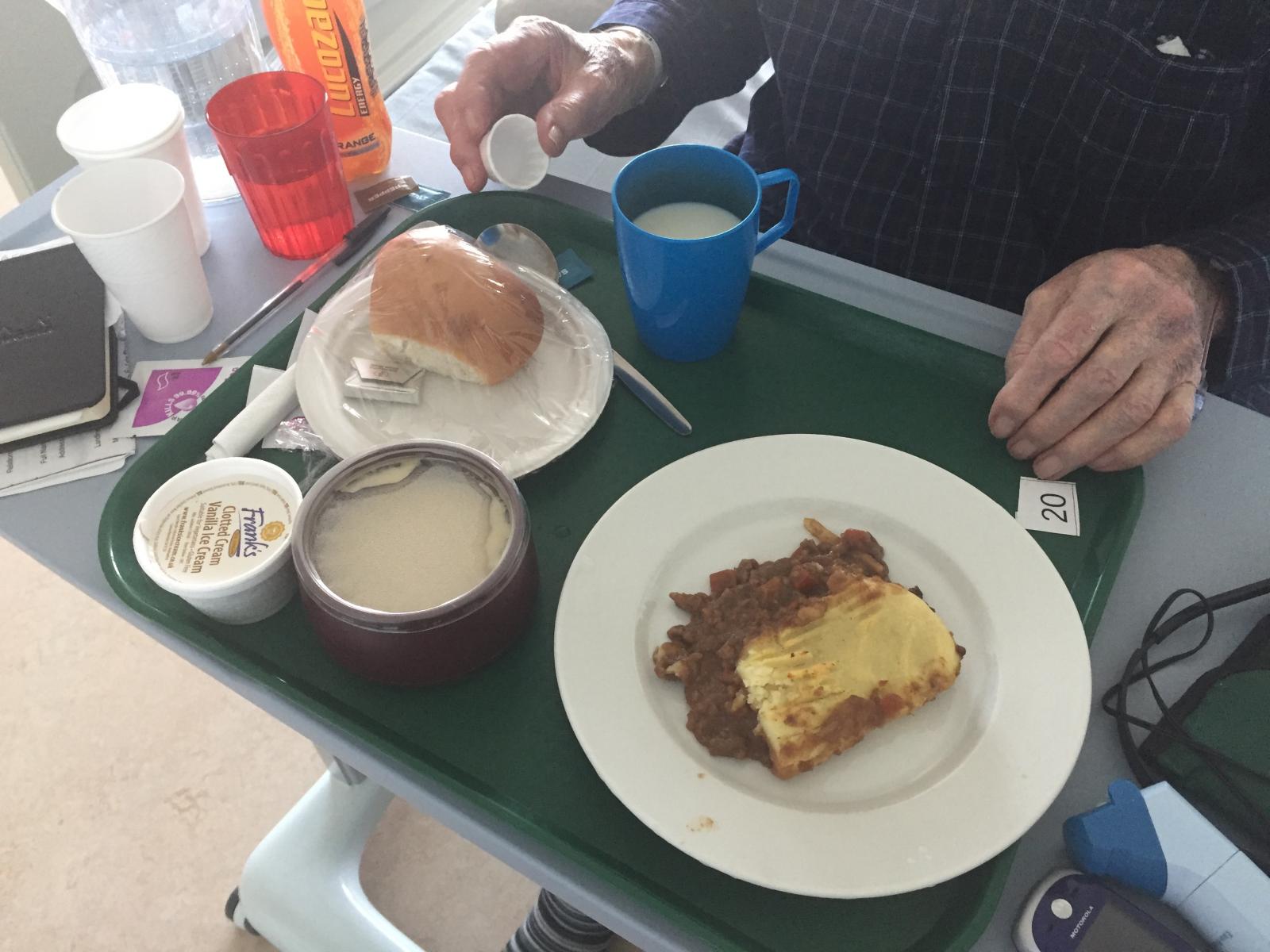Government spending more on nutritional supplements for patients than on hospital meals
The Campaign for Better Hospital Food [1] today published new figures showing that the government spends more on nutritional supplements for hospital patients than on food served to them during their stay [2].
In 2012 the NHS spent more than £300 million on nutritional supplements for patients who are malnourished, have specific dietary requirements or are lacking in nutrients like vitamins and fibre, yet spent less than this amount on food for patients.
As many as 50,000 people a year could be dying with malnutrition in NHS hospitals in England [3] and the majority of patients admitted to hospital lose weight during their stay [4].
Lady Cumberlege [5] will today introduce a Hospital Food Bill to the House of Lords for debate [6]. The Bill would set mandatory quality standards for all patient meals, including standards to ensure that they are nutritious and made to minimum standards of production. 97 national organisations [7], including the Royal College of Physicians, Patients Association, British Dietetic Association and the British Heart Foundation, are calling on David Cameron and Jeremy Hunt to give government support to the legislation.
While hospital food in England does not have to meet mandatory standards, the majority of food served in public sector institutions in the UK does. This includes school food, food served in prisons and government departments, as well as patient meals in Wales and Scotland [8]. The Bill seeks to rectify this anomaly and extend quality standards to patient meals in England.
Lady Cumberlege said:
“It is especially clear to patients and their families that something needs to be done to improve hospital food. One simple way to do this is to require all patient meals to meet minimum standards of quality, like those that exist for school food and prison food. The government is busy working on legislation in a number of areas, so I wanted to introduce this Bill to help them to address an urgent issue of concern.”
Alex Jackson, Co-ordinator of the Campaign for Better Hospital Food, said:
“Nutritional supplements are routinely prescribed to hungry patients who are not eating hospital food because of its poor quality. It is far better for patients to be nourished by enjoyable food than by pills administered as medicine, and it would save the NHS money too. Lady Cumberlege has done a fantastic job to introduce vital legislation to improve hospital food. It would be beyond belief for the government not to support it.”
Notes:
[1] Campaign for Better Hospital Food is calling for mandatory hospital food standards, see www.hospitalfood.org.uk.
[2] Data from the Health and Social Care Information Centre (HSCIC) shows that the NHS spent £321,746,579 on nutritional supplements for hospital patients in 2012, comprising:
£224,785,117 on enteral nutrition (e.g. supplements which are not taken orally and are administered directly to the patient, for example by feed tube into the stomach).
£96,961,462 on foods for ‘special diets’ (e.g. supplements taken by mouth in the form of, for example, a pill, milkshake or yoghurt, and which may be suitable to specific dietary needs, like coeliac disease).
For all HSCIC data about NHS expenditure on nutritional supplements please visit http://tinyurl.com/noo63ae. Please also find a list of the nutritional supplements bought by hospitals in 2012 in the Excel spread sheet which I have sent to you by email, along with this press release. The supplements in the spread sheet are ranked in order of the amount NHS hospitals spent on them in 2012.
According to NHS Hospital and Estates data 2012/2013, the gross cost of patient food services for all NHS Trusts was £540,690,577. Half of this money, a total of £270,345,288.50, was spent on food ingredients.
The Campaign for Better Hospital Food is currently carrying out a research project into the financial benefits of setting mandatory quality standards for hospital food in England. The findings will be included in a report which is likely to be published in December 2013. As part of this research, the campaign sent a Freedom of Information request to every NHS Trust in England which established that approximately half of every hospital’s total catering budget is spent on food ingredients. The rest of the money is spent on other catering costs, like management costs and staff costs.
[3] Conservative Party, Almost 50,000 patients dying with malnutrition in the NHS, 2010 [source].
[4] British Association for Parenteral and Enteral Nutrition, Hospital Food as Treatment, December 2012 [source] .
[5] Baroness Cumberlege was created a life peer in 1990 and was appointed as a Health Minister from 1992 to 1997. She is a Trustee at Cancer Research UK, Vice President of the Royal Society for Public Health and Honorary Fellow at the Royal College of Physicians.
[6] Lady Cumberlege’s Hospital Food Bill is called the Health and Social Care (Amendment) (Food Standards) Bill and is available to read at http://services.parliament.uk/bills/2013-14/healthandsocialcareamendmentfoodstandards.html.
[7] A list of organisations supporting the Campaign for Better Hospital Food is available at https://www.sustainweb.org/hospitalfood/organisations/.
[8] Food served in most public sector organisations in England already has to meet mandatory standards. School food has to meet mandatory nutritional standards and food served in ‘central government, including government departments and prisons, has to meet mandatory Government Buying Standards.
Published Friday 8 November 2013
Better Hospital Food: The campaign represents a coalition of organisations calling on the Westminster government to introduce mandatory nutritional, environmental and ethical standards for food served to patients in NHS hospitals in England.
